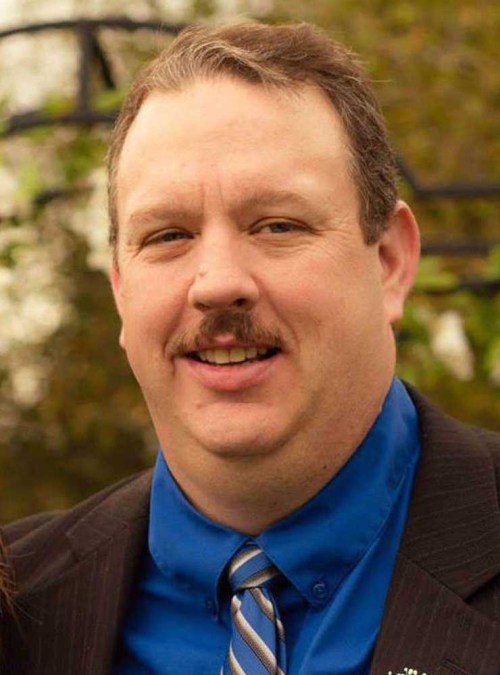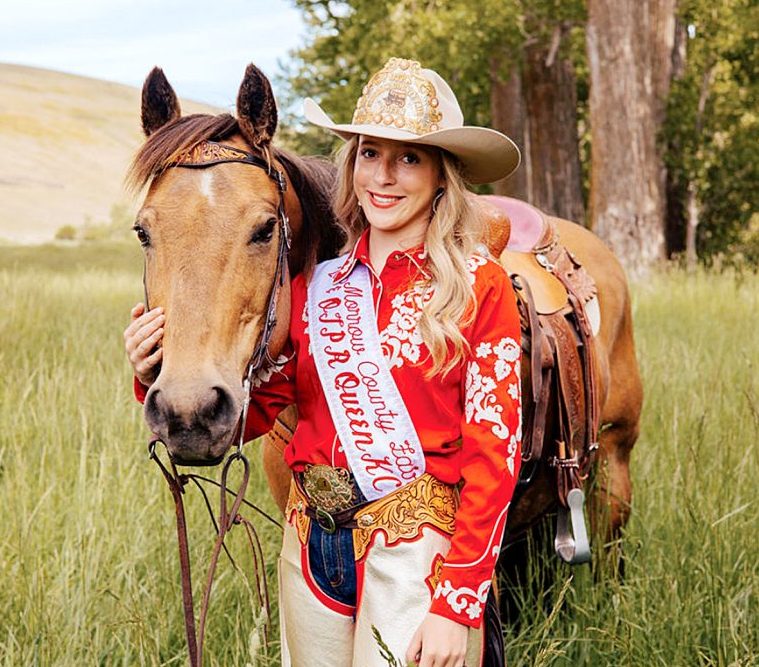Pastor of church challenging Oregon governor’s emergency coronavirus orders is Facebook friend with judge
Published 8:06 pm Tuesday, May 19, 2020

- Francis
BAKER CITY — Baker County Circuit Judge Matthew B. Shirtcliff, who invalidated Oregon Gov. Kate Brown’s emergency “stay home” orders this week, is Facebook friends with the pastor of the Baker County church that’s the lead plaintiff in the case.
The connection in the high-profile case — now before the Oregon Supreme Court — highlights what judicial experts say is an ongoing discussion about the proper use of social media by judges.
Trending
It also reveals the practical problem in a sparsely populated county with just a single state judge and one who served as district attorney for almost two decades. Chances are that longtime members of the political and legal community like Shirtcliff know a lot of people who might appear before him.
Among them: Elkhorn Baptist Church Senior Pastor Tim Francis. Francis spent 21 years as a sheriff’s deputy in the county and said Tuesday that he sent a friend request to the judge when a recommendation popped up on his screen within the past year.
“I’ve known the judge over 25 years, but our relationship has always been professional,” Francis said.
Francis didn’t give the personal Facebook link between the two much thought when the case — brought by his church and nine others — went before Shirtcliff this month, with Shirtcliff ruling on Monday, he said.
“We don’t hang out with him or anything,” the pastor said. “It doesn’t concern me because the judge and I don’t have a personal relationship.”
Shirtcliff did not respond to emails or a phone message. His judicial assistant, Amy Swiger, said judicial ethics constraints prevent the judge from commenting or granting an interview on a case before him.
Trending
Shirtcliff was appointed to the bench Nov. 1, 2019, by Brown after serving as Baker County’s top prosecutor for 18 years.
Oregon has no written guidelines on use of social media for judges.
The Oregon Code on Judicial Conduct, along with the American Bar Association’s model Code of Judicial Conduct, tells judges they should disqualify themselves in any proceeding where “a reasonable person would question the judge’s impartiality.”
According to the Oregon code, that could include a personal bias or prejudice relating to one party in the case, one of the lawyers or personal knowledge of the facts that are in dispute. Other disqualifying circumstances include if a close relative or friend is involved in the proceeding, if the judge or a spouse has an economic interest in the case or if the judge has made statements that indicate a commitment to a particular result.
Polk County Circuit Judge Norman R. Hill, who chairs the state’s Judicial Conduct Committee, said social media and judges is “a hot topic.” The committee educates judges on their obligations under the state’s judicial code of conduct.
“There’s a lot of discussion … But I don’t think there’s any court opinions in Oregon that deal specifically with what judges can or cannot do on social media,” Hill said.
Much of the debate centers on whether judges should send or accept friend messages on social media from lawyers who appear before them.
“What does it say when I’m friending somebody? It doesn’t mean the same thing as that’s my ‘friend.’ That’s hard to explain, and it creates issues,” Hill said.
Most judges, Hill said, would likely advise it’s better not to be on Facebook or accept friend requests from lawyers but there’s no “bright line rule.”
The judicial conduct code clearly says judges can’t do anything that would give the impression that they’re biased, but just because judges know someone doesn’t mean they can’t hear the case, he said.
The next question is whether a judge’s relationship with the person in question could affect impartial decision-making, Hill said.
Yet, even if the judge has no bias, Hill noted: “Could a reasonable person in the community raise a legitimate question about your bias? That’s a slippery concept because what’s reasonable?”
Senior Judge Phyllis Williams Kotey, who teaches professional ethics at Florida International University’s College of Law in Miami, said there’s been an evolution over the years as to “what it means to be a friend” on Facebook or another social media account.
Kotey said judges should disclose any relationships they have with a party in the case, but that doesn’t mean they must step aside from hearing a matter.
In today’s world of social media, it’s sometimes impossible for judges to know who all their friends are on a social media account, said Kotey, who has been on the faculty of the National Judicial College for 20 years.
That’s why she said she tends not to accept law school students as Facebook friends.
“It really is going to depend on the nature of the relationship,” she said.
In a small county or town, if judges “conflicted out of all of their cases based on who they knew, they wouldn’t be able to do their job,” she said.
In the Baker County case, Kotey said the same questions could be asked about Shirtcliff’s potential bias in relation to the governor because Brown appointed him to the bench.
“I think there’s an issue for both sides,” she said.
The governor’s staff filed an emergency appeal to the Oregon Supreme Court, which has put a hold on Shirtcliff’s ruling and set a deadline of Friday to get briefs in the dispute.
Shirtcliff ruled that the governor’s executive orders in response to the global pandemic exceeded a 28-day limit adopted by state lawmakers and were no longer valid in response to a suit filed by 10 churches against the governor.
Chief Justice Martha L. Walters recused herself from the high court’s decision to put Shirtcliff’s decision on hold. Todd Sprague, a Judicial Department spokesman, said justices don’t talk about decisions in cases beyond what’s written in their opinions or orders.
Nothing in the order explains why Walters didn’t participate in the decision. However, Walters has issued orders as chief justice that restricted court operations and limited travel, and has given other directions to courts similar to instructions the governor issued to executive branch agencies amid the coronavirus pandemic. Brown’s orders don’t apply to the judicial branch.
With the explosion of social media in the last decade, other states have examined how judges should handle their online presence and published judicial ethics opinions.
A 2011 judicial ethics advisory panel in Oklahoma, for example, considered whether a judge with a social media account could add people who may appear in court — including law enforcement officers, social workers and attorneys — as “friends” on the account. The answer? Yes, with restrictions.
Several state judicial ethics panels have recommended judges use extreme caution on social media, and be mindful of the appearance created when he or she establishes such a social connection with an attorney or anyone else. They must consider whether such online connections rise to the level of a “close social relationship” requiring disclosure and or recusal, the opinions note.
“A Judge shall not convey or permit others to convey the impression that any person or organization is in a position to influence the Judge,” the Oklahoma opinion said.
New York, South Carolina, Kentucky and Ohio have similar rules.
But several states repeat an admonition from a 2008 New York judicial ethics advisory ruling that said: “Social networking sites are fraught with peril for Judges.”
A 2009 Florida judicial ethics advisory went further, prohibiting a judge from adding lawyers who appear in the judge’s court as “friends” on social media accounts and lawyers from adding the judge as a “friend” as well.
It’s immaterial if such online connections mean the person actually has a special relationship with the judge, the panel found, because “it would or could convey that impression.”
This article was originally published by the The Oregonian/OregonLive, one of more than a dozen news organizations throughout the state sharing their coverage of the novel coronavirus outbreak to help inform Oregonians about this evolving heath issue.









